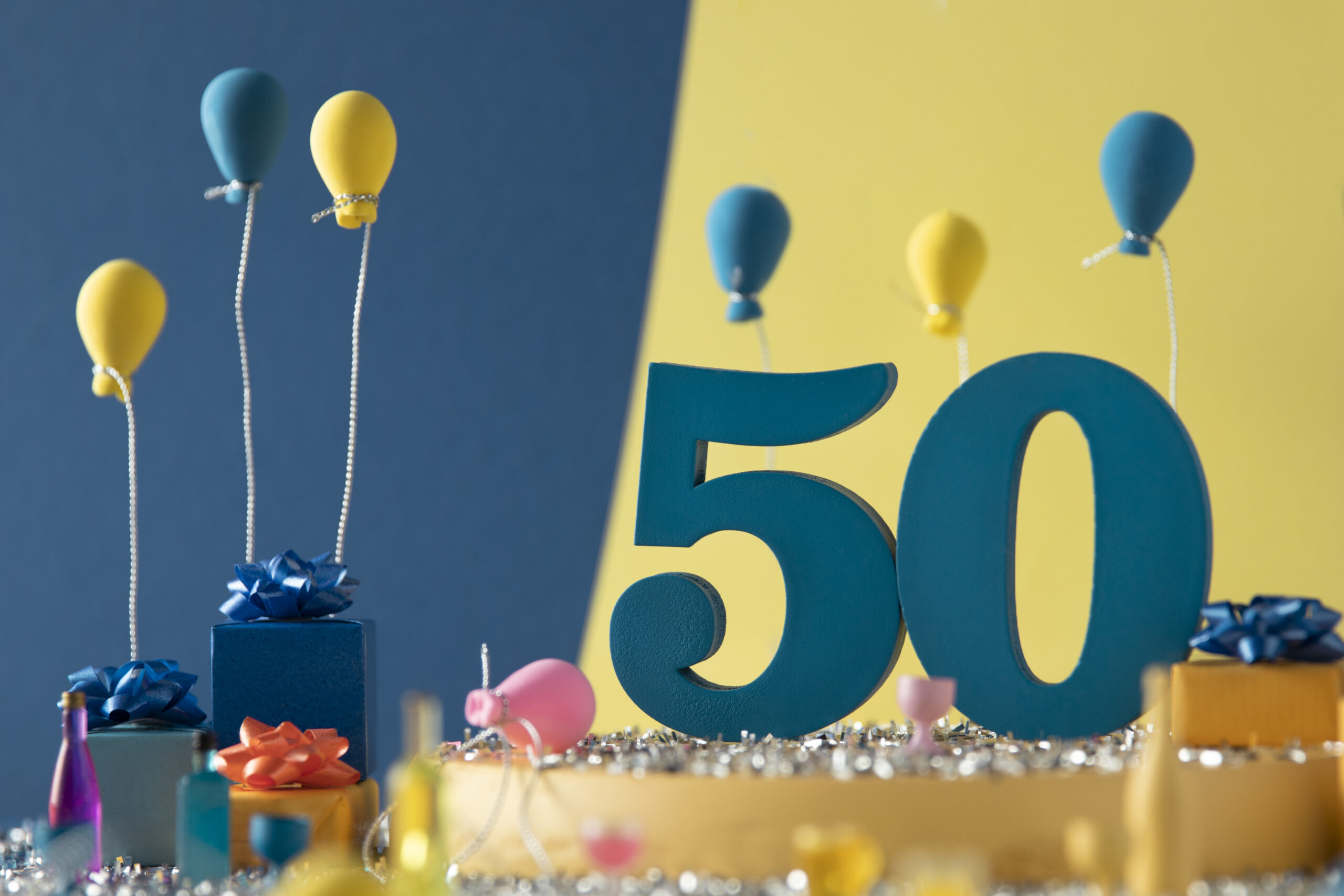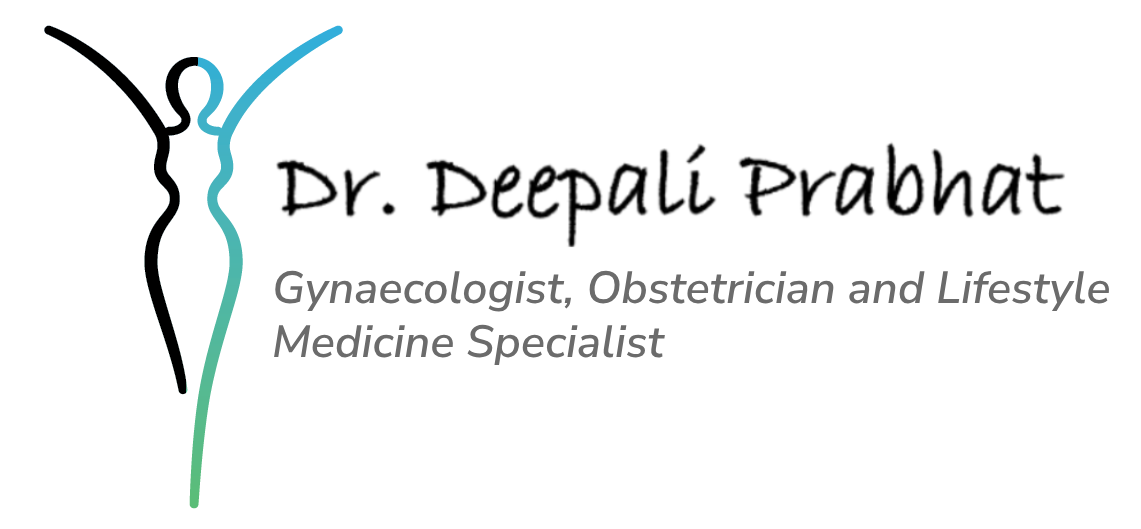
Shushrusha has turned fifty, and many of us, including me are on the brink of it! It is certainly a time for celebration and as well as contemplation of what we have achieved so far and plan ahead. This golden phase is full of changes, successes, achievements and challenges. Some aspects of it can be controlled and others are out of hand; some changes are exciting and invigorating and others can be difficult. Children have grown up and heading out on their own and parents now require all the love and attention that you can give and for ones without any one, loneliness can creep in.
For women, these times may be as smooth as a sail on a cruise liner or as turbulent as a rollercoaster ride. Menopause may have arrived or is around the corner and it’s the time to take charge of one’s physical, mental and emotional health which is mostly (if not entirely) self dependent.
Our metabolism naturally slows down as we age and one needs fewer calories. One may notice few changes in the body shape and find that one has less energy. In our 50’s we have a tendency to replace lean body mass (muscle) with fat, which burns fewer calories than muscle and hence the weight gain cycle is often difficult to break but it can be done through an appropriate diet and exercise programme. Obesity is the topmost risk factor for chronic diseases including cancer, even above smoking.
Eating healthy is a simple but most important measure for maintaining good health. Limiting processed foods high in unhealthy fats and preservatives and regular intake of plenty of colourful seasonal fruits and dark green leafy vegetables, lean proteins, healthy fats (flaxseeds and nuts), whole grains, fibre, vitamins and minerals is mandatory. Cut down on empty calories from sugary drinks and sweets.
Equally important is getting at least 30-60 minutes of physical activity on most days of the week including aerobic exercise for heart health and weight bearing exercises to reduce the risk of brittle bones or osteoporosis. Briskwalking, yoga, cycling, swimming, hiking, dancing, jogging and weight lifting are good choices. Pick an activity you enjoy and you will more likely stick to it. Find a workout buddy. Schedule the exercise into your days and make it a habit. Always listen to your body and if it hurts, stop. Soothe the aches and pains with warm towel or hot pack to relax joints and muscles. Gentle stretches and ice pack works well for swelling and pain when you are new to exercise. In addition, try to incorporate physical activity like climbing stairs, walking the dog, gardening etc. in the daily routine. Stretching and deep breathing (Pranayama) exercises also are extremely beneficial. It is advisable to talk with your doctor before beginning any new unfamiliar exercise programme. Maintaining a healthy body mass index as well as normal waist to hip measurement ratio goes a long way in reducing risk of developing many health problems like Diabetes and Hypertension.
Challenging your mind can improve brain function and overall health. Taking up an interesting hobby that you always wanted to pursue but never had the time is a good idea to take care of the empty nest syndrome. Travel or learn a musical instrument or a new language. Spend more time with friends or family. Social people have sharper thinking and they are much less likely to have memory problems as they age. Try volunteering as it is linked with lower risk of heart disease and a longer life. Do not wait until you retire to start. Studies show that the earlier you begin, less likely you are to have health problems later. Form a social circle of girlfriends that you can share your experiences with and you realise that you aren’t the only one going through this phase.
Sleeping patterns often change as we get older, but good sleep is very important for good health. If you are having difficulty sleeping or notice you are more tired than usual, talk to your healthcare provider. Getting too little sleep can increase your risk for certain healthcare problems. Chronic stress, a common problem people in their 50’s takes a heavy toll on mental and physical health. Studies have shown that stress increases the risk for heart attack, stroke and other serious medical problems and may speed up the aging process. Do not hesitate to meet a counsellor if you are feeling overwhelmed or think you may be suffering from anxiety or depression.
If you want your skin to defy the years in addition to the above, use a sun screen every day. It will reduce wrinkles and even if you start now, you will be benefitted. Choose a product with SPF of 30 or higher.
Health concerns of women in their 50s include development of abnormal blood sugar levels (insulin resistance, prediabetes, Type 2 Diabetes), high blood pressure, high cholesterol and triglycerides, digestive issues, hairloss, changes in vision, hearing loss, chronic pain in back or joints. Menopause may cause hot flashes, weight gain, vaginal dryness and sexual dysfunction. Other urogenital problems such as overactive bladder and urinary incontinence are not uncommon .There is also increased risk of thyroid problems, skin problems (dry skin, wrinkles, age spots), heart disease, bone loss or osteoporosis, and cancer (breast, colorectal, cervical etc).Tobacco and alcohol consumption also increase the risk of chronic diseases such as cancer and should be avoided.
Goals of routine health care in your 50s are to develop and maintain a doctor-patient relationship,adopt a healthy lifestyle,screen for disease,assess risk for medical problems (including mental health issues and update immunisations.
Physical examination(check up) at least every 2 years or as recommended;height,weight and BMI calculation, Blood Pressure, blood tests (Diabetes screen, Cholesterol screen), urine analysis, ECG, X-ray chest. Dental examination and cleaning every 6 months to 1 year. Annual clinical breast examination, pelvic examination and pap smear, mammography and bone densitometry at least every 3 years (annually in high risk) should be done. Colorectal cancer screening especially in increased risk (family history) with checking for occult blood in stool and colonoscopy if required. Immunisations such as tetanus booster every 10 years and annual influenza vaccine is recommended.
Supplements of Vitamin D or B12 may be required in many who are deficient inspite of a balanced diet and calcium and iron are best absorbed through natural foods rich in these minerals and supplements are the second best choice.
Do not self medicate and take medications after consultation with a qualified health provider whichever branch of medicine it may be allopathy, ayurvedic, homeopathy or any other.
So all women out there be fantastic at 50. The best is yet to come!
